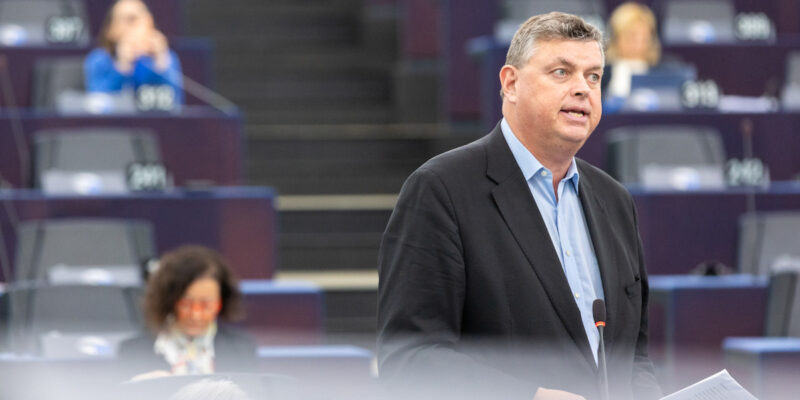EFJ calls on future Secretary General of the Council of Europe to commit to press freedom

The European Federation of Journalists (EFJ) welcomes the call by the Parliamentary Assembly of the Council of Europe (PACE) to enforce Council of Europe standards on media freedom. This must be the top priority for the next Secretary General of the Council of Europe, who will be elected in June.
Meeting in Strasbourg on 25 January, PACE emphasised the pressing need “to enforce the high standards on media freedom which the Council of Europe has established, to ensure effective protection of journalists and to uphold in all member States a friendly and safe environment for media independence and pluralism”.
It recalled that member states “have a positive obligation to establish a sound legal framework for media pluralism and for journalists and other media actors to work safely”. However, we are far from having reached this result, noted the author of the report, the Danish MP Mogens Jensen, pointing out that since the creation in 2015 of the Council of Europe Platform to promote the protection of journalism and safety of journalists, the number of alerts posted had more than doubled in eight years, rising from 108 in 2015 to 289 in 2022.
By adopting a resolution based on the report by Mogens Jensen, PACE expressed its deep concern at the multiple attacks to media freedom and the too many cases of impunity, especially in relation to murders of journalists, some of which remain unresolved for more than a decade. It insisted on the duty of State authorities “to investigate each and every crime against journalists, and bring to justice the instigators, perpetrators and accomplices”.
The adopted text also mentions the high level of harassment targeting journalists in Azerbaijan, the expanding phenomenon of media capture in Hungary, Poland and Serbia, and the alarming number of journalists detained in Turkey. As the EFJ recently noted, 108 journalists are currently imprisoned in Europe: 40 in Russia and occupied Ukraine, 32 in Belarus, 19 in Turkey, 15 in Azerbaijan, 1 in Poland and 1 in the United Kingdom (Julian Assange).
In this context, PACE called on member states to develop national action plans on the protection of journalism and safety of journalists; review legislation which can be abused or misused to unduly restrict media freedom; improve the legislative and regulatory framework against any political interference and undue concentration of media ownership; and support genuine public service media, securing their viability and editorial independence.
Member States are also required to “adopt a gender-specific approach to counter gender-based violence, which should be regarded as an aggravating circumstance in crimes”, and to “implement adequate measures to protect journalists during public demonstrations and other public events”.
Commending the launch, on 5 October 2023 in Riga, of the Council of Europe Campaign for the Safety of Journalists, the parliamentarians called on member states to fully endorse and take an active part in this Campaign. “The Campaign is a unique opportunity to raise awareness amongst parliamentarians and strengthen the role of parliaments in upholding media freedom,” they concluded.
“The resolution, which was passed by all the MPs present with the exception of two Turkish MPs and four MPs from the Spanish and Italian far-right parties, Vox and Fratelli d’Italia, reflects a very broad commitment,” said EFJ General Secretary Ricardo Gutiérrez. “We are therefore asking the three candidates for the post of Secretary General of the Council of Europe – the EU’s Justice Commissioner Didier Reynders, former Swiss President Alain Berset and Estonia’s former culture minister Indrek Saar – to make a personal commitment to press freedom as their top priority. We look forward to their public commitment on this issue, which is crucial to the future of our democracies”.






